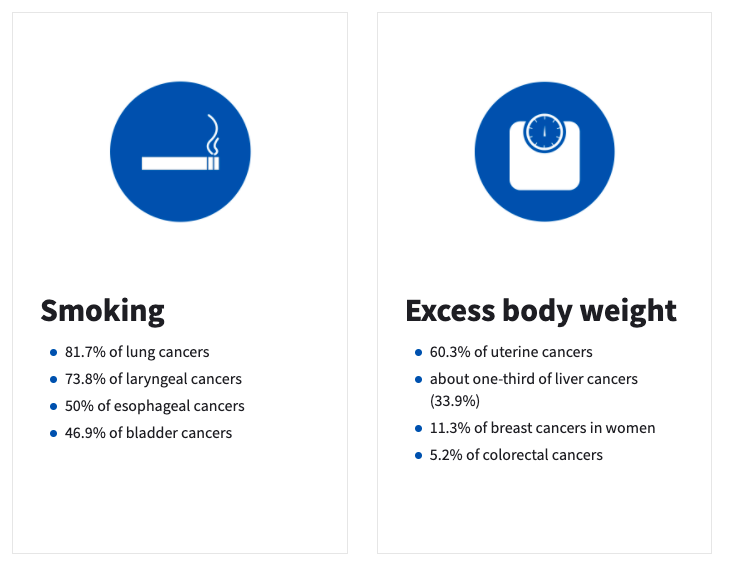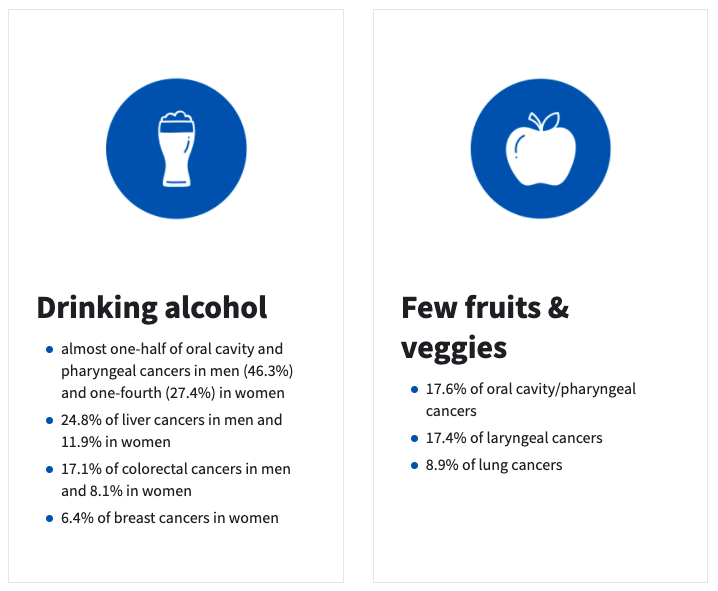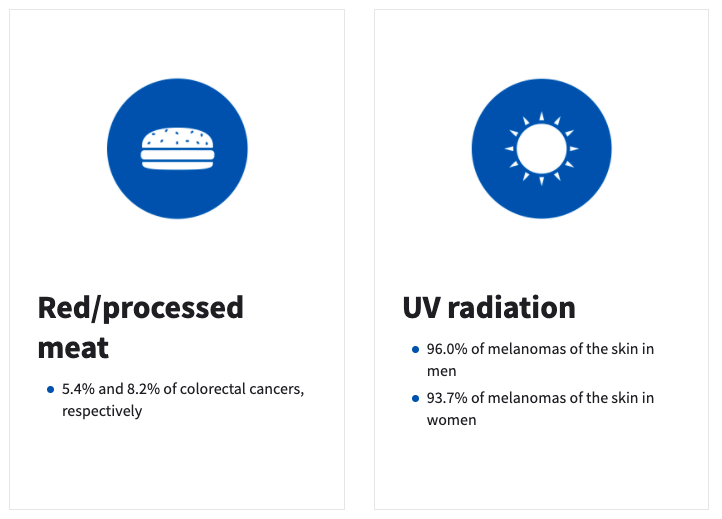I’ve recently had a very personal encounter with this very question.
One of my jobs, as a physician, is to try to prevent cancer, or try to diagnose it BEFORE it has spread. In my arsenal are several screening tests (a test done to diagnose a cancer at an early stage). I have colonoscopies or stool test for colon cancer, I can order blood tests to look for prostate cancer (via PSA), Mammograms for breast cancer, Pap smears for cervical cancer and Lung CT scans for smoker to early detect lung cancer.
These cancers we can screen for account for about 25% of all cancer.
YES – you heard that correctly – 75 % of cancer that we suffer from, do not have widely accepted, highly accurate means to early detect.
There are modifiable risk factors for cancer.
These factors will raise the risk of cancer developing over your lifetime. They are not the SOLE factor in these cancers but each will raise the risk of certain cancers. The American Cancer Society states that about 40% of cancers are linked to a modifiable risk and thus could be preventable.
The largest contributors include:
- cigarette smoking
- drinking alcohol
- eating red and processed meat
- diet low in fruit/veggies, fiber
- physical inactivity and excess body weight
- UV radiation



Family history can contribute to increased risk of cancer too.
It is one thing when a family has a lineage of breast cancers in grandparents, parents and siblings - in these cases we highly recommend genetic testing.
In other settings, when it is a little more subtle, your doctor will weigh the relatives who had cancer and then take into account which type of cancer and the age of diagnosis. A parent passing from a cancer at 80 is more likely related to some of the risk factors above, versus a parent that passes or is diagnosed with a cancer at 32 (in which case genetics likely plays a larger role). In those cases, we can consider a COLOR test or INVITAE genetics tests to see if you’ve inherited a gene that puts you at higher risk for certain cancers.
There are some relatively NEW tests that are a little more controversial and I anticipate will become more available, affordable and accurate in the next decade.
Namely Full Body MRI or GRAIL (a liquid biopsy). The reasons for their controversy - mostly surrounds the lack of very large studies, the possibilities of false positives and false negatives. Which then leads to more interventions and more risks of those interventions.
For example : Uncle Joe gets an MRI, and they find a small area in the lung that looks suspicious. They proceed with further studies and radiation, a biopsy to see if they can diagnose it, and then he suffers from a pneumothorax and has to be hospitalized for three days. The end result of the diagnosis is benign (non-cancerous lesion) but Uncle has suffered a complication.
It is something to weigh when assessing the benefits of finding something of significance against the risk of a complication from the intervention that can lead to some serious consequences.


